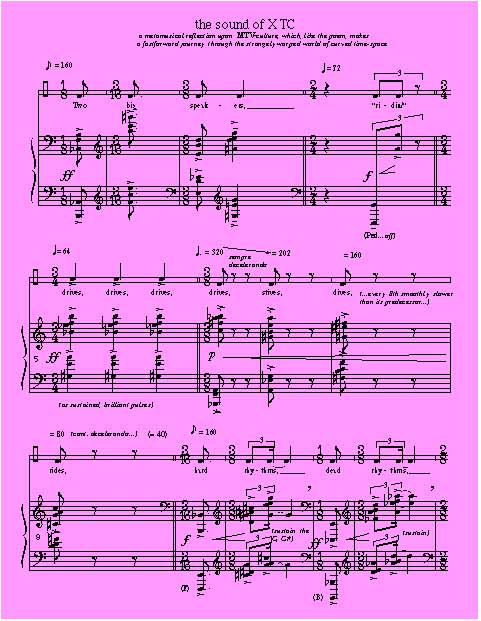
(Image: First page of piano score: "A metamusical reflection upon MTV culture, which, like the poem,
makes a fastforward journey through the strangely warped worlds of curved time-space."
| go to score of "The Sound of XTC" |
The Sound of XTC
Two big speakers,
"ridin/"
d r i v e s, d r i v e s, d r i v e s,
drives, strives, dives, rides,
hard rhythms,
dead rhythms,
every beat, too soon,
too late,
b e a t, d a t e, f a t e,
beat, date, fate
(too soon/
fate, date, fate
(too late/
mate, rape, scape,
scape, e-scape?
no, no, no, no, no, no,
c h a r g e, b a r g e,
no no, no, no
pound the bass,
"in my car/
pound the bass,
l a r g e, r o u n d, (l a r g e / r o u n d )
hard rhythms,
oo, oo, oo, oo,
dead/
hard, hard, hard, h a r d,
oo, oo, oo, oo
tune in?
hard, h a r d,
in?
pound the bass,
"can't get/
no, no, no, no
pound the bass,
no, no, no, no,
s a t i s f a c/
no. no.
satis?
no. /no./